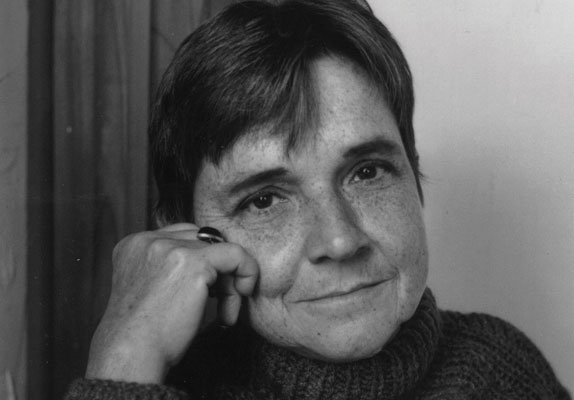
Adrienne Rich, born 1929 in Baltimore, was an American poet and essayist, one of the foremost and influential intellectual voices of the contemporary era.
Her earliest 1951 work, A Change of World, won the Yale Younger Poets Award and several awards followed, including being finalist for Pulitzer Prize in 2017, posthumous.
As perfectly stated in the Poetry Foundation archive dated 2012, “beginning with Snapshots of a Daughter-in-Law: Poems 1954-1962 (1963), Rich’s work has explored issues of identity, sexuality and politics; her formally ambitious poetics have reflected her continued search for social justice, her role in the anti-war movement, and her radical feminism. Utilizing speech cadences, enjambment and irregular line and stanza lengths, Rich’s open forms have sought to include ostensibly “non-poetic” language into poetry. Best known for her politically-engaged verse from the tumultuous Vietnam-war period, Rich’s collection Diving into the Wreck: Poems 1971-1972 (1973) won the National Book Award.”
…
I’ve walked there picking mushrooms at the edge of dread, but don’t be fooled
this isn’t a Russian poem, this is not somewhere else but here,
our country moving closer to its own truth and dread,
its own ways of making people disappear.
…
And I won’t tell you where it is, so why do I tell you
anything? Because you still listen, because in times like these
to have you listen at all, it’s necessary
to talk about trees.
In an interview from the Progressive dated 1994, Rich says:
“Instead of political poetry, we might want to say poetry of witness, poetry of dissent, poetry that is the voice of those and on behalf of those who are generally unheard. I’m reading poetry all the time that is enormously accessible in its language. And I don’t mean by that using the smallest possible vocabulary. We’re living in a country now where the range of articulateness has really diminished down to almost a TV level, where to hear people speaking with rich figures of speech, which used to be the property of everybody, is increasingly rare.”
Twenty-five years later, those words are still so true and possibly even more important in a world where dissent is much needed and language is rapidly evolving.
But Adrienne Rich did not write only as a fervent activist and feminist, she did not speak only of an existential, cultural, psychological, moral crisis and the willingness to change.
She also composed very passionate and painful love poems, enriched by beautiful visions and dreams.
From XXI Love poems, III
Since we’re not young, weeks have to do time
for years of missing each other. Yet only this odd warp
in time tells me we’re not young.
Did I ever walk the morning streets at twenty,
my limbs streaming with a purer joy?
did I lean from any window over the city
listening for the future
as I listen here with nerves tuned for your ring?
And you, you move toward me with the same tempo.
Your eyes are everlasting, the green spark
of the blue-eyed grass of early summer,
the green-blue wild cress washed by the spring.
At twenty, yes: we thought we’d live forever.
At forty-five, I want to know even our limits.
I touch you knowing we weren’t born tomorrow,
and somehow, each of us will help the other live,
and somewhere, each of us must help the other die.
Ilaria Boffa
